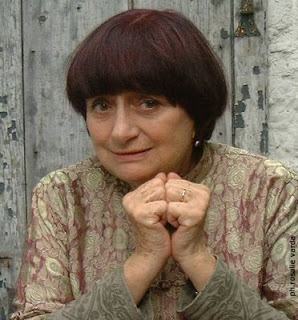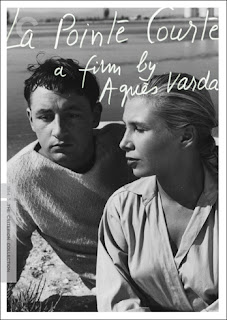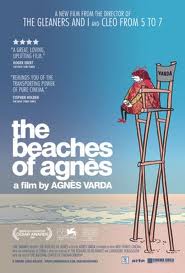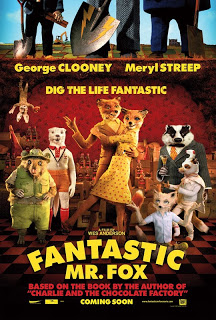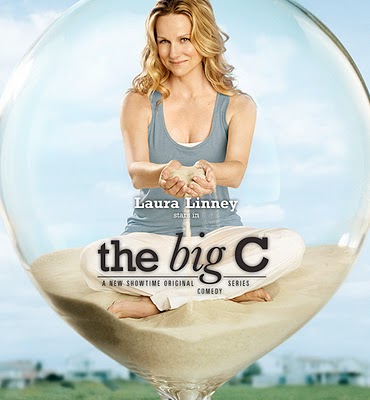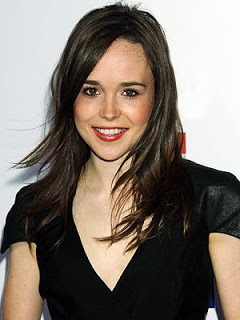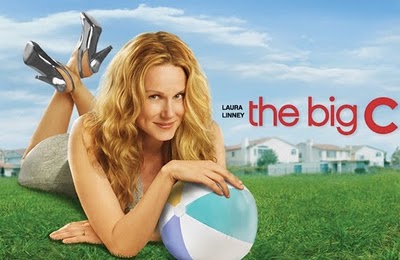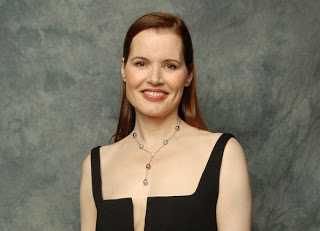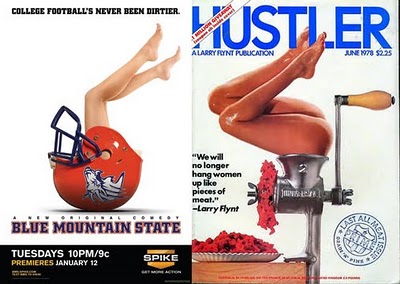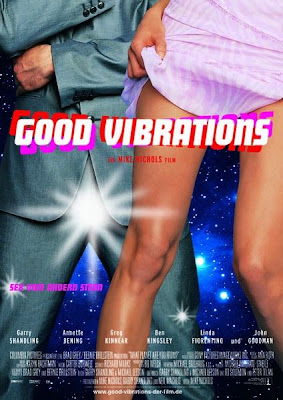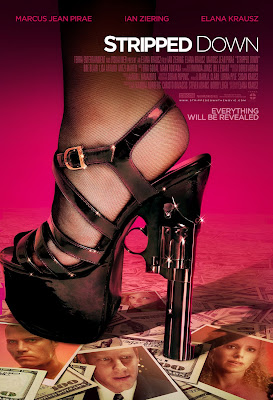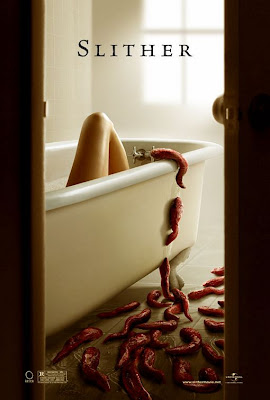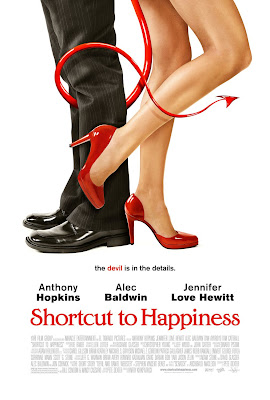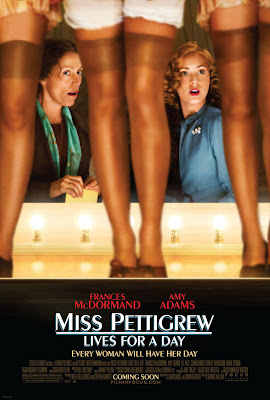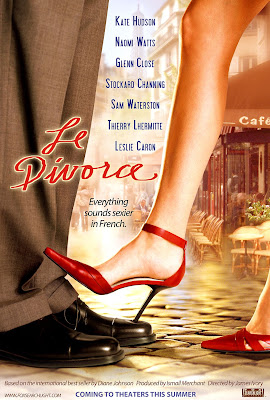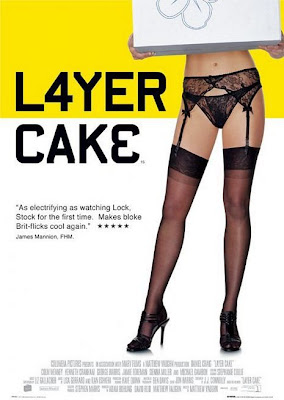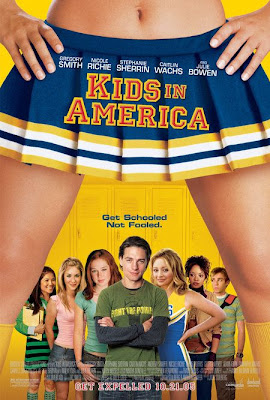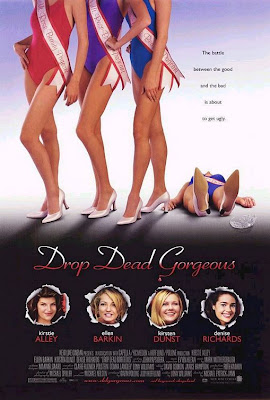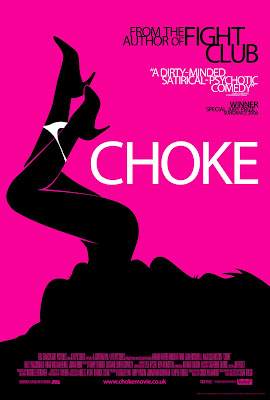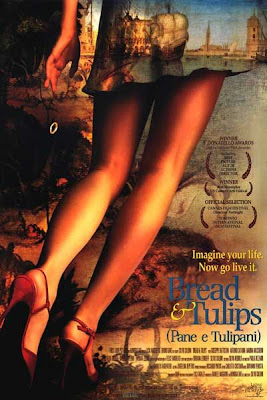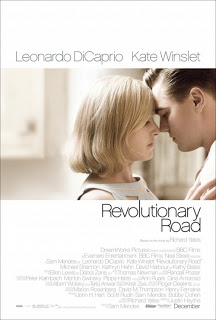Most of the commentary out there on The Social Network focuses on its awesomeness and front-runner status for this year’s Best Picture Academy Award. Plus, the film won its opening weekend’s box office, even though it’s numbers were lower than anticipated. While it very well may be a brilliantly-made film, one thing we can’t ignore is the film’s women. Other people are talking about the film’s misogyny, too, which raises this question:
Here are some of our findings. If you’ve written about the women of The Social Network, or have read something good that we missed, please leave your links in the comments section.
Rebecca Davis O’Brien’s “The Social Network’s Female Props” @ The Daily Beast:
Complaining about misogyny in modern blockbuster cinema is about as productive as lamenting Facebook’s grip on our society. But what is the state of things if a film that keeps women on the outer circles of male innovation enjoys such critical acclaim; indeed, is heralded as the “defining” story of our age? What are we to do with a great film that makes women look so awful?
Tracy Clark-Flory’s “Female programmers on “The Social Network” @ Salon Broadsheet
But, oh, are there groupies: They aggressively undo belt buckles in bathroom stalls, take bong hits while the boys do their important coding work and rip open their blouses so that coke can be snorted off their flat little tummies. They are useless on the technical and business front, as is made clear in a scene where two groupies look on as Zuckerberg has a sudden revelation and begins barking orders to his all-male team. The doe-eyed coeds ask if there is anything they can do to help out — and the question itself is a punch line. Even a nubile Facebook intern who presumably does have some technical abilities is introduced only to party with Facebook’s smooth-talking president, Sean Parker (played by Justin Timberlake), at a Stanford frat party. The women are trophies for these male history-makers.
Laurie Penny’s “Facebook, capitalism and geek entitlement” @ New Statesman
The only roles for women in this drama are dancing naked on tables at exclusive fraternity clubs, inspiring men to genius by spurning their carnal advances and giving appreciative blowjobs in bathroom stalls. This is no reflection on the personal moral compass of Sorkin, who is no misogynist, but who understands that in rarefied American circles of power and privilege, women are still stage-hands, and objectification is hard currency.
The territory of this modern parable is precisely objectification: not just of women, but of all consumers. In what the film’s promoters describe as a “definitively American ” story of entrepreneurship, Zuckerberg becomes rich because, as a social outsider, he can see the value in reappropriating the social as something that can be monetised. This is what Facebook is about, and ultimately what capitalist realism is about: life as reducible to one giant hot-or-not contest, with adverts.
Irin Carmon’s The Social Network, Where Women Never Have Ideas @ Jezebel
Hollywood’s solution to Facebook’s unsexy creation story was familiar: Add women as sluts, stalkers, or ballbusters. With very few exceptions, girls don’t even know how to properly play video games or get high off a bong, and they’re gold-diggers or humiliating bitches, and they certainly never come up with anything of value on their own. The result is a fictional Harvard as crudely misogynistic as Hollywood — which, thankfully, it actually wasn’t — and a world in which the best a woman can hope for is to have her rejection create as meaningful a legacy.
Melissa Silverstein’s “The Social Network” @ Women and Hollywood
The film depicts a world where women are crazy groupies, there for amusement, to give you blow jobs in bathrooms at parties, and to snort coke off of, but not to be taken seriously. The tech world has long been known as a world that favors guys, just this week twitter was all “atwitter” about a women in tech panel that occurred at the TechCrunch Disrupt event in SF.
I guess that is one reason why it is a perfect movie for Hollywood today. I know there are women doing some seriously important and great jobs in tech, just like I know that there are women doing some seriously important and great jobs in the films business. But we all know that the tech guys are more visible and the movie guys are more visible.
Steven Colbert’s interview with Aaron Sorkin @ The Colbert Report
| The Colbert Report | Mon – Thurs 11:30pm / 10:30c | |||
| Aaron Sorkin | ||||
| www.colbertnation.com | ||||
|
||||
Jennifer Armstrong’s “‘The Social Network’ has a woman problem” @ Entertainment Weekly’s Pop Watch
The Social Network has turned out to be the rare pop cultural phenomenon that is everything we hoped it would be. Smart, riveting, and very much of our time, it provides endless fodder for intellectual dissection and further exploration. The fact that it has become so all-engrossing, however, makes one glaring fact about it all the more disturbing: Its downright appalling depiction of women.
Roxanne Samer’s “Review: The Social Network” @ Gender Across Borders
Previously, I have argued that in some cases representations of sexism and racism can serve as political critiques of the mistreatment they depict. One could claim that Zuckerberg and his peers’ objectifying of women and fetishization of Asian women in particular is presented in the film as in poor taste. The film is by no means casting Zuckerberg, never mind Parker, as an innocent angel. But in the end one must ask: are these trysts etc. depicted as deplorable or as typical and tolerable 20-something boy behavior? My intuition says it’s the latter.
JOS’ “Social Network sexism” @ Feministing
The film follows an interesting pattern I’ve noticed in other work by contemporary male filmmakers (Inception as an example) – it offers compelling insight into sexism while also displaying a sexist perspective in its storytelling.
Cynthia Fuchs’ “‘The Social Network’: Fincher and Sorkin’s Story of Obsession” @ Pop Matters
Based on Ben Mezrich’s 2009 book, The Accidental Billionaires, and scripted by Aaron Sorkin, the film is already renowned for its breakneck dialogue (especially when Mark speaks, condescendingly and oh-so-cruelly). However fictionalized that dialogue might be (the book imagines conversations as it recounts events mainly from Eduardo’s perspective, and includes luridish party and sex scenes), it represents here an attitude that makes its own political and cultural point, that men and boys in privileged positions tend to see the world in ways that benefits them, that reinforces their privilege.
Jenni Miller’s “‘The Social Network’ and Sexism: Does the Film Treat Women Unfairly?” @ Cinematical
We’re given a trio of wholly unreliable narrators who do see women as props and prizes and ugly feminists out to get them. They’re emblematic of all the things that the fictional Mark Zuckerberg wants and feels are out of his reach, like the Harvard social clubs. Even Eduardo Saverin (Andrew Garfield) questions whether or not Zuckerberg’s screwing him over all boils down to the fact that Saverin got into one of Harvard’s fancy clubs where WASPs cheer on half-naked women making out with each other.
David Ehrlich’s “5 Reasons Why ‘The Social Network’ Does Not Define This Generation” also @ Cinematical
5. It’s a film about men in a generation that’s also about women (I hope).
Alison Willmore’s “The (Homo)Social Network” @ IFC
The suggestion that Aaron Sorkin and David Fincher had an obligation to insert a token “strong lady” character in order to make their film more demographically friendly or underline how their own intentions are separate from their characters is condescending to audiences. The film world still leans incredibly toward male perspectives, male characters and male audiences, and the way to fix that is by supporting and encouraging women making and working in movies, not by implying the need for an artificial quota of “go girl”ness.
Dana Stevens’ “Is the Facebook movie sexist?” @ Slate
The Social Network presents an odd paradox in its vision of the war between the sexes (which, like all the conflict in this movie, is a real war, brutal and unattenuated). It’s smarter about the way women circulate as objects of male competition, predation, and fantasy than it is about the motivations of individual female characters. The film’s “women problem” doesn’t lie in the fact that many of the women in it (with the exception of Erica Albright and the lawyer played by Rashida Jones) are shallow, self-serving jerks—so are most of the men. But any film capable of putting on-screen as complex and fascinating a jerk as Jesse Eisenberg’s Mark Zuckerberg should be smart enough to do the same for the ladies.





